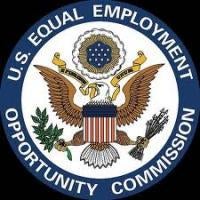EEOC Sued After Male Employee Was Harassed by a Woman
A federal judge has ordered Prospect Airport Services, Inc., a provider of wheelchair assistance services to airline passengers, to implement extensive measures to prevent sexual harassment, the U.S. Equal Employment Opportunity Commission (EEOC) announced today.
The order was necessary because, after agreeing to a monetary settlement of $75,000, Prospect refused to agree to any prospective relief to prevent future harassment. This refusal forced the EEOC to petition the district court for an injunction. The EEOC had charged in the underlying lawsuit that the company failed to address complaints of unrelenting sexual advances toward a male passenger services assistant by a female co-worker in Las Vegas. The EEOC originally filed suit against Prospect in 2005 in U.S. District Court for the District of Nevada (EEOC v. Prospect Airport Services, Inc., Case No. 2:05-cv-01125-KJD-GWF).
Stating that “the Court is convinced that injunctive relief is necessary in this case,” U.S. District Judge Kent J. Dawson granted the EEOC’s request and issued an order enjoining Prospect from further violating Title VII as it relates to sexual harassment for a period of five years. Adopting most of the EEOC's proposals, the court further ordered that Prospect must develop a policy and procedures for handling reports of sexual harassment; develop an effective investigation process for all complaints of sexual harassment; appropriately discipline management and human resources staff for failure to comply with such procedures; and provide annual sexual harassment training to all supervisory employees. This order impacts the over 4,000 workers employed by Prospect. The EEOC will monitor compliance with the judge’s order.
In 2002, the male employee began to receive sexually suggestive notes from a female co-worker while employed by Prospect at the McCarran International Airport in Las Vegas. The EEOC asserts that the male employee -- whose wife had just passed away the prior year -- rebuffed the advances and brought the notes to the attention of a general manager who made light of the advances and failed to stop the harassment. There was no effective company policy at the time to address the issue, according to the EEOC.
While the alleged victim repeatedly communicated that he was not interested in the female co-worker, the advances only intensified, including giving him a semi-nude photo of herself, making lewd gestures, and even recruiting other employees to approach him on her behalf. Over the course of a year, the harassment escalated to a near-daily basis, including offensive remarks by co-workers about his sexuality due to his rigorous rejection of the sexual advances. Despite his repeated complaints to management, the hostile work environment ended only when he resigned in 2003.
Sexual harassment violates Title VII of the Civil Rights Act of 1964. The EEOC filed suit after first attempting to reach a pre-litigation settlement through its conciliation process. The court granted summary judgment in favor of Prospect in 2007. However, the Ninth Circuit Court of Appeals reversed the decision in 2010, allowing a jury trial in the lower court to proceed with the opinion that such a trial might favor the EEOC.
“Today the court has spoken to affirm the importance for all employers to have effective policies and procedures in place to prevent discrimination in the workplace,” said Anna Y. Park, regional attorney for the EEOC’s Los Angeles District Office, which includes southern Nevada in its jurisdiction. “A strong policy, meaningful training and a swift response to complaints help to contain an existing hostile work environment or to prevent one from arising. The judge’s order will go a long way toward protecting Prospect’s employees from harassment.”
“Sixteen percent of all sexual harassment charges at the EEOC last year were filed by men,” said Adriana Lopez, acting local director for the EEOC’s Las Vegas Local Office. “The law protects both men and women from sexual harassment at work, and it is the employer’s obligation to actively prevent and correct such problems as they arise in the workplace.”
According to its website, Chicago-based Prospect Airport Services provides a broad range of services to airlines and has over 4,000 employees in 13 cities and 14 airports across the United States.
The EEOC enforces federal laws prohibiting employment discrimination. Further information about the EEOC is available on its web site at www.eeoc.gov.



 />i
/>i

